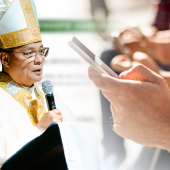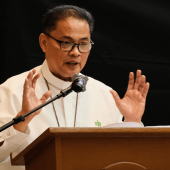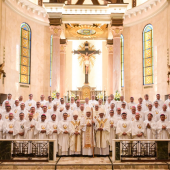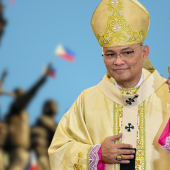The bishops’ Conference of the Philippines reelects Bishop David as president
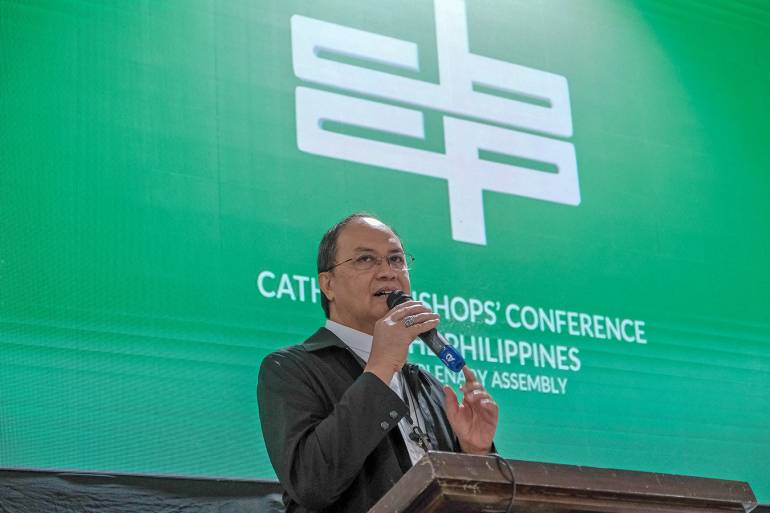
Kalookan Bishop Pablo Virgilio Siongco David (64) has been reelected as the Catholic Bishops’ Conference of the Philippines (CBCP) president on July 8, 2023.
Around 80 bishops were present at the Marzon Hotel in Kalibo, Aklan, where the election took place during the CBCP's 126th plenary assembly on July 8.
Bishop David’s reelection marks his second CBCP presidency and his last period for another two years.
The prelate is a strong advocate of standing up for truth, especially with the rise of social media in the middle of what he called the “pandemic of lies.”
Bishop David also called for "more serious action” in the fight against the climate crisis, inviting church institutions to unite in declaring a state of emerging.
Bishop Mylo Hubert Claudio Vergara (60) of Pasig Diocese was also reelected as vice president of CBCP.
During CBCP’s first-ever online plenary assembly in the middle of the COVID-19 pandemic, Bishop David and Bishop Mylo were first elected to their respective posts at the episcopal conference in July 2021.
Currently, the CBCP comprises 87 active bishops, three diocesan administrations, and 43 retired bishops who serve as honorary members.
In January and July, the episcopal conferences meet for three-day assemblies, in which bishops decide on matters ranging from pastoral statements to liturgical rite revisions.
Active bishops are eligible to vote on particular items, with a vote of two-thirds of the members required for conference matters to be approved.
Meanwhile, retired bishops attending can participate in the discussion but cannot vote.
The Permanent Council oversees the CBCP's deliberations and decisions between January and July plenary assemblies.-Luke Godoy.
Radio Veritas Asia (RVA), a media platform of the Catholic Church, aims to share Christ. RVA started in 1969 as a continental Catholic radio station to serve Asian countries in their respective local language, thus earning the tag “the Voice of Asian Christianity.” Responding to the emerging context, RVA embraced media platforms to connect with the global Asian audience via its 21 language websites and various social media platforms.









